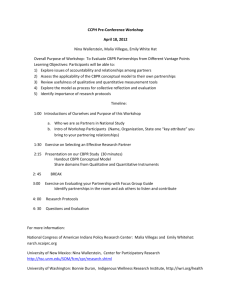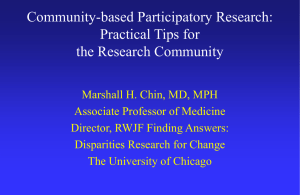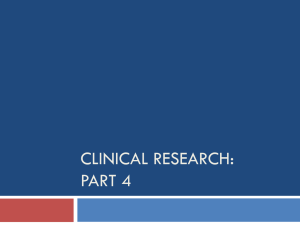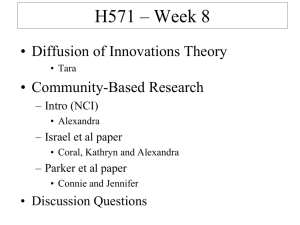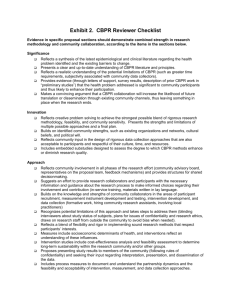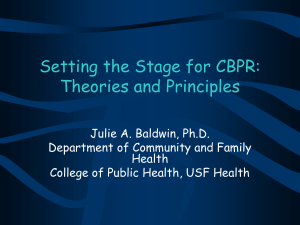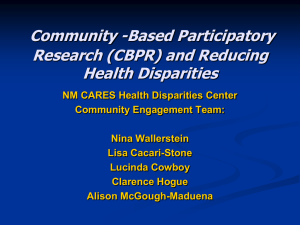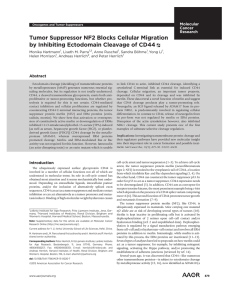2010 COMMUNITY-BASED PARTICIPATORY RESEARCH WORKSHOP Reducing Barriers between Researchers and Communities
advertisement
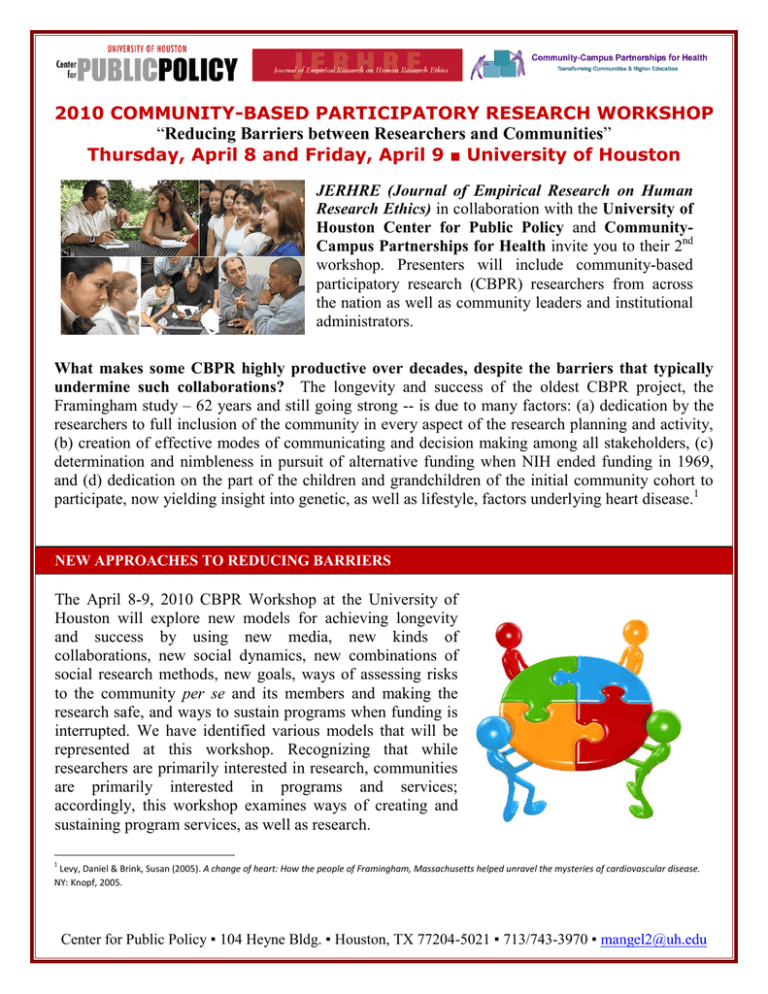
2010 COMMUNITY-BASED PARTICIPATORY RESEARCH WORKSHOP “Reducing Barriers between Researchers and Communities” Thursday, April 8 and Friday, April 9 ■ University of Houston JERHRE (Journal of Empirical Research on Human Research Ethics) in collaboration with the University of Houston Center for Public Policy and CommunityCampus Partnerships for Health invite you to their 2nd workshop. Presenters will include community-based participatory research (CBPR) researchers from across the nation as well as community leaders and institutional administrators. What makes some CBPR highly productive over decades, despite the barriers that typically undermine such collaborations? The longevity and success of the oldest CBPR project, the Framingham study – 62 years and still going strong -- is due to many factors: (a) dedication by the researchers to full inclusion of the community in every aspect of the research planning and activity, (b) creation of effective modes of communicating and decision making among all stakeholders, (c) determination and nimbleness in pursuit of alternative funding when NIH ended funding in 1969, and (d) dedication on the part of the children and grandchildren of the initial community cohort to participate, now yielding insight into genetic, as well as lifestyle, factors underlying heart disease.1 NEW APPROACHES TO REDUCING BARRIERS The April 8-9, 2010 CBPR Workshop at the University of Houston will explore new models for achieving longevity and success by using new media, new kinds of collaborations, new social dynamics, new combinations of social research methods, new goals, ways of assessing risks to the community per se and its members and making the research safe, and ways to sustain programs when funding is interrupted. We have identified various models that will be represented at this workshop. Recognizing that while researchers are primarily interested in research, communities are primarily interested in programs and services; accordingly, this workshop examines ways of creating and sustaining program services, as well as research. 1 Levy, Daniel & Brink, Susan (2005). A change of heart: How the people of Framingham, Massachusetts helped unravel the mysteries of cardiovascular disease. NY: Knopf, 2005. Center for Public Policy ▪ 104 Heyne Bldg. ▪ Houston, TX 77204-5021 ▪ 713/743-3970 ▪ mangel2@uh.edu TRANSLATIONAL RESEARCH ENGAGES IN BEST PRACTICES IN THE COMMUNITY In the 30 years since the Belmont Report, the role of the community in research has evolved. Today, more and more translational research is being performed with the active engagement of individuals and communities rather than merely upon them. The ethical conduct of community engaged research (CEnR) requires an integrated and comprehensive human subjects protection (HSP) program that addresses the additional concerns salient to CEnR where members of a community are both research partners and participants. Human subjects protection is best achieved if the various entities that provide HSP are coordinated. In this workshop, we will discuss 1) how the concept of risk must be expanded to address risks to both individuals and communities; 2) the issues that community-academic partnerships should address prospectively to both minimize risks and to ensure that the research promotes a positive benefit/risk ratio; 3) how various HSP entities should conceive of their roles to provide an integrated HSP program that address both individual and community risks; and 4) how to define and evaluate research integrity in community-focused research. KEY TOPICS OF THE 2010 WORKSHOP The many approaches to CBPR: Learning from the differences. Understanding the nature of CBPR, the risks involved, and how to make it safe and equitable for communities and their members. Obtaining and sustaining funding for CBPR . Innovative communities and their ways of bridging or reducing barriers. New technologies in CBPR and their ethical implications. Recognizing and resolving individual value and cultural issues, and their ethical implications. Gatekeepers of community research and development. Integration: A final panel will seek to identify gaps and lead a discussion of what topics to focus on at the next workshop in 2011. Details and Registration Information at: www.uh.edu/cpp/cbprc2010workshop.htm
